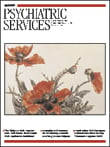Assembling My Father: A Daughter's Detective Story
In her wonderful and courageous reconstruction of her father's life, Assembling My Father: A Daughter's Detective Story , Anna Cypra Oliver does what so many people who lose a parent in childhood never have a chance to do: she moves beyond the frozen and superficial image of a man who committed suicide when he was only 35 and his young daughter was only five years old. For many, the early death of a parent has the effect of freezing the image of that parent forever. The young energetic mother never ages; the athletic hopeful father never experiences the disappointments of middle age. The parent remains as he or she was on the day that tragic and unwelcome death took him or her away ( 1 ). By her process of psychological and literal sleuthing, the author of this moving and beautifully written chronicle comes to know her father just as a daughter might face the reality of a living father, "in excruciating little bursts."
As a child, Ms. Oliver knew very little of her father. Death took him away, but before that, her mother, part of the nomadic hippie culture of the late sixties and early seventies, left him when the author was quite young. Consequently, Ms. Oliver's recovery of her father's life unfolds as an organic process. Slowly, by interviewing people who knew him, reading his journal, and visiting places where he lived, an image of the man evolves. Evolves is the critical word because each new piece of information gives the author and the reader a changing and increasingly more complex idea of who her father was. At one point she comments, "I'm building my father one anecdote, one image, one scrap of evidence at a time." Her slow process of gathering information allows for the constant transformation of her father. He is not static like so many parents who die young. Instead he changes, he develops, and, in a paradoxical way, he lives.
Because the author is a gifted writer, the chronicle develops like a good detective story. There are clues and a cast of fascinating characters along the way that enliven the story. But at its heart, this is not a piece of clever fiction. Assembling My Father is a daughter's attempt to know her father and in so doing to construct her own authentic identity. The book tackles the always elusive question of how we become the people we are. As the image of her father "shifts, moves and feints" so too does the identity of the author. Ms. Oliver goes through several profound changes until she comes to rest in a place that not only ties her to her father but seems right for who she has become as a result of her odyssey.
The book is its most poignant when the author writes to her father about what his loss has meant to her and to other people who loved him. How does anyone understand a suicide? How does anyone forgive the willful abandonment of a young family? Ms. Oliver has struggled to know her father and has found a way to grant him the peace of forgiveness. He would have been fortunate to know such a remarkable daughter.
1. Harris M: The Loss That is Forever: The Lifelong Impact of the Early Death of a Mother or Father. New York, Dutton, 1995Google Scholar



